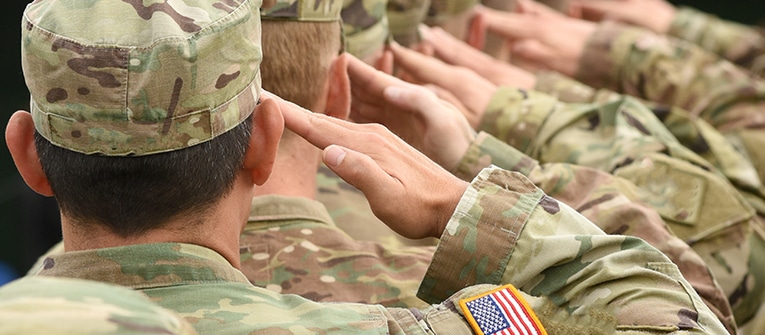
Killeen Lawyers for Veterans Charged with Driving While Intoxicated
Experienced advocacy for DWI charges in Killeen, Harker Heights and Copperas Cove
Drinking can be part of the culture in the military. It’s a way of coping with the minute-by-minute stresses and demands of combat. And, after a veteran is discharged, alcohol or drugs can be an easy way to address the difficulties of trying to move forward into civilian life. Substance abuse can be an unhealthy way of managing both physical and emotional disorders.
As an Army mom and Army wife, Mary Beth Harrell understands the toll that service can take. She has worked with families whose loved ones are dealing with alcohol abuse, and seen the effects that this abuse can have.
At Mary Beth Harrell Law Firm, we work with veterans who have been charged with a DWI by trying to persuade the government and the courts to focus on the underlying problems of veterans. For more than 20 years, we’ve been helping Texans who have helped our country. There are several ways DWI cases can be handled when a veteran is charged with driving while intoxicated.
What is a Veterans Treatment Court?
The counties in Texas have created veterans treatment courts, which are aimed at helping veterans who have substance abuse and mental health problems and have been charged with a criminal offense. The courts work with eligible defendants by creating a treatment plan to address why a veteran is having trouble.
The program is a non-adversarial program in which the veteran’s defense lawyer, the lawyer for the government, the court, and various veteran’s agencies help draft a treatment program for the veteran. These programs focus on the individual’s medical, social, employment, housing and other needs. One such veteran’s program that helps assist veterans with substance abuse issues is the Department of Veteran's Affairs (VA) Alcohol and Drug Dependence Rehabilitation Program. This program helps with detoxification, psychological care, and rehabilitation.
How do pre-trial and deferred adjudication programs work?
Texas’s pre-trial program is for first-time offenders. Our skilled Killeen DWI defense lawyers help veterans qualify for these programs which help defendants avoid having a trial or conviction for their charges.
The pre-trial program. As a general rule, individuals who qualify for the pre-trial program will be required to complete a rehabilitation period and avoid any other criminal charges for a specified probationary period. Veterans who qualify will usually have their charges dropped on satisfactory completion of the program. Some counties, though, do require that the person on the program plead guilty to be eligible for the program. If the defendant completes the program, the charges are dropped. However, if the person fails the program, then the criminal case continues with the guilty plea on record.
To qualify for the program, the veteran (in addition to pleading guilty in some counties):
- Can’t have a prior arrest record
- Can’t commit a criminal offense during the probationary period
- Must be employed or be in school
- Must work with a probation officer
Satisfactory completion of the pre-trial program also means that the veteran can file a request for an expunction so the DWI arrest won’t appear in employment background checks.
The deferred adjudication program. This program is different than the pre-trial program. Defendants do plead guilty or “no contest.” However, any sentence is postponed for a specific period of time. The eligibility requirements are similar to pre-trial diversion. In addition, the individual must pay any fines, court costs and any possible restitution expenses.
What defenses can be used in criminal courts for a DWI charge?
If a veteran doesn’t qualify for a veterans treatment court, a pre-trial program, or a deferred adjudication, then the veteran will be formally tried on the DWI charge.
Most DWI charges are based on the failure of the veteran to pass or comply with field sobriety tests and with chemical tests such as breath tests. A DWI is generally based on a finding that the veteran had a blood alcohol content level of .08 or more. Refusals to take these tests can also be used as evidence.
Our experienced Killeen DWI defense lawyers generally raise one or more of the following defenses:
- The lawyer requests a suppression hearing challenging the admissibility of the tests. The challenges may include:
- The testing equipment such as a breathalyzer was invalid
- The police officer failed to administer the tests properly
- The police officer wasn’t certified to use the breath machine
- The officer failed to obtain a warrant for a blood or urine test
- The law enforcement officer didn’t have grounds to stop your vehicle
- The police officer failed to properly explain the consequences of refusing to take any tests
- Other defenses that may apply depending on the circumstances around the arrest
In addition to contesting whether tests can be submitted, experienced DWI defense lawyers work to reduce the charges to other less serious offenses such as speeding or traffic offenses. When necessary, our skilled lawyers try your case before a jury of your peers.
Killeen DWI defense attorneys for veterans
At Mary Beth Harrell Law Firm, our veterans DWI defense lawyers understand the unique difficulties that veterans face. That is why we focus as much as possible on alternative dispute resolution methods such as veterans treatment programs and probationary programs. For veterans who don’t qualify for these programs, such as when they are charged with a felony, we fight to have the charges dismissed, to negotiate a fair plea bargain which considers their military service, and to defend their rights before a jury. For help with any DWI charge, veterans should call 254-680-4655 or fill out our contact form to schedule an appointment. We have offices in Killeen and Harker Heights.
Related Article
